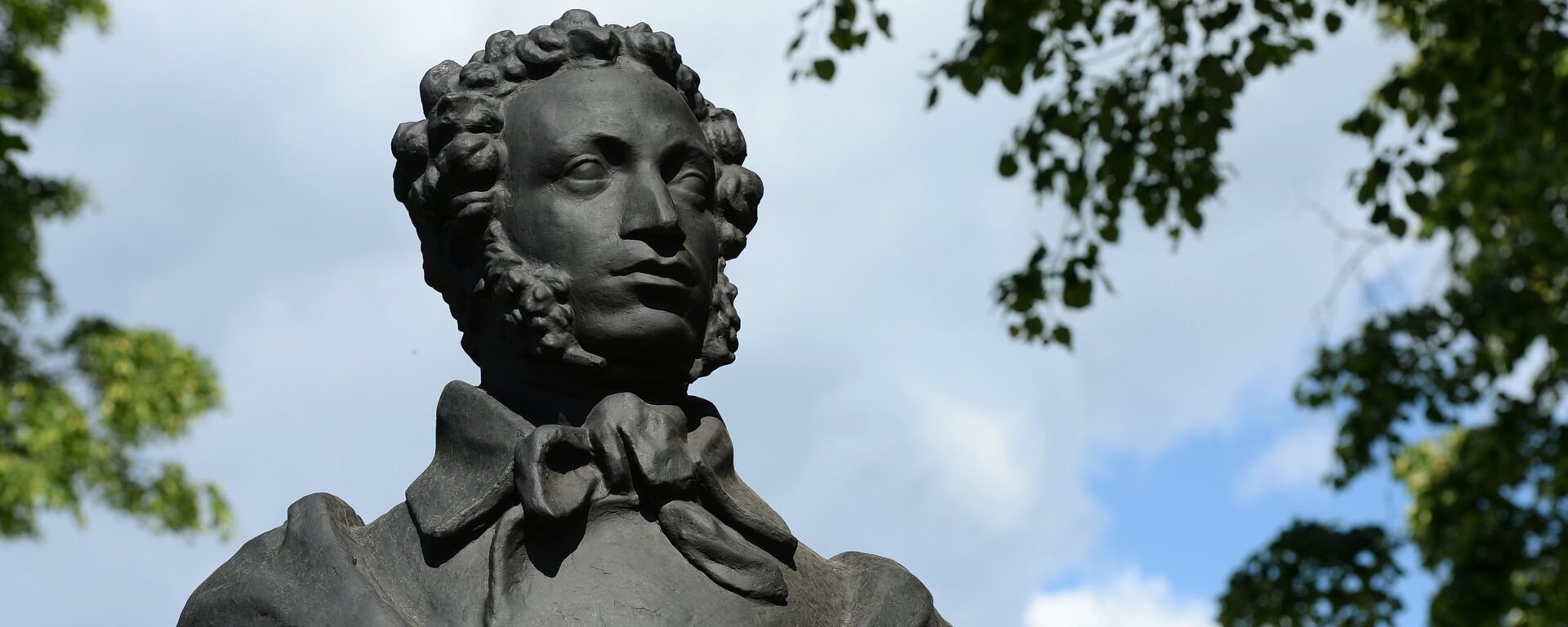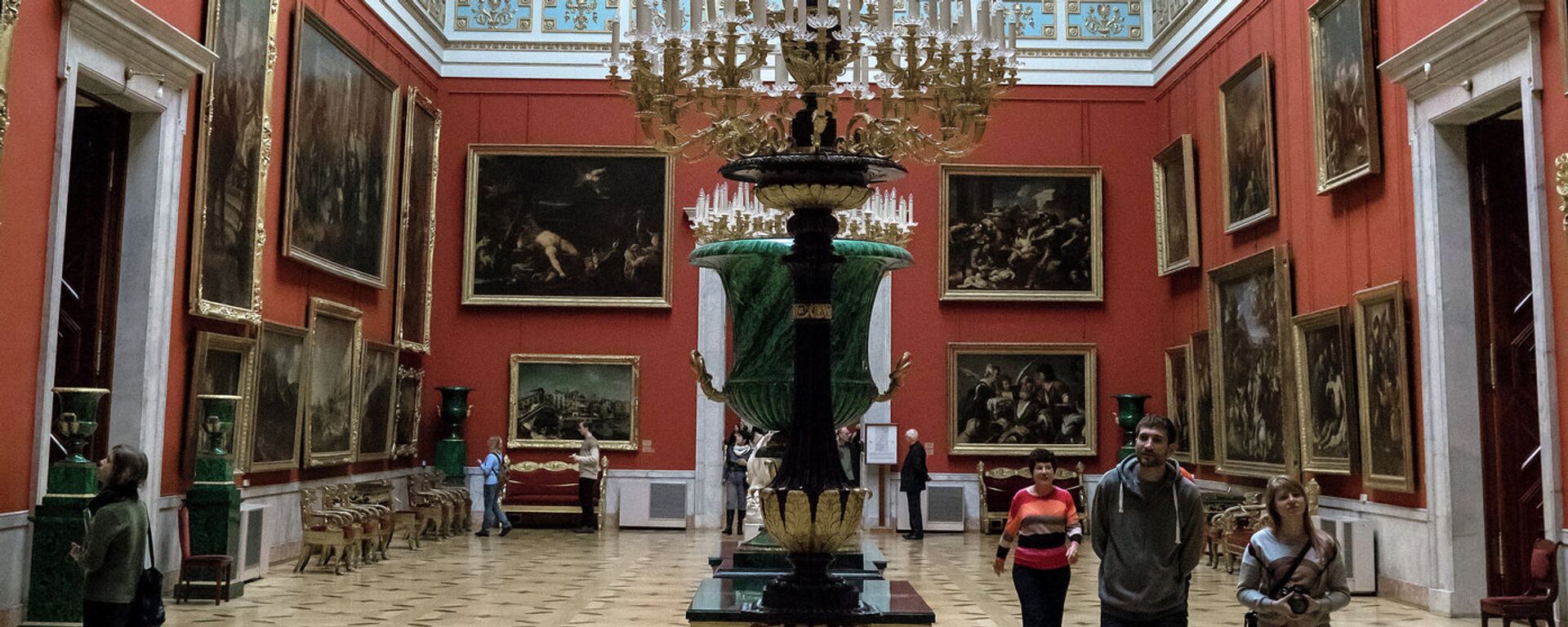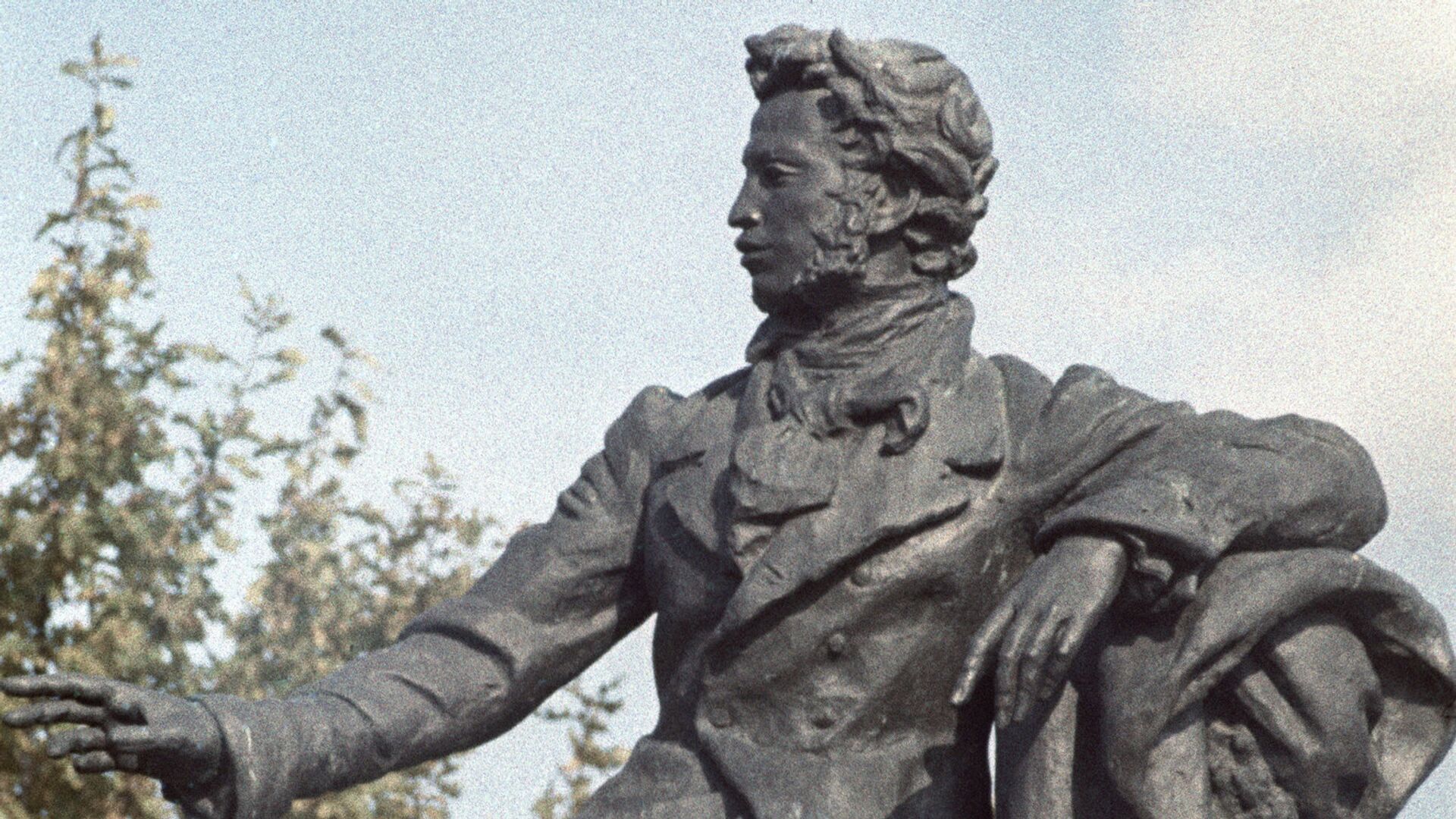https://sputnikglobe.com/20230606/americans-might-understand-pushkin-more-easily-than-byron---us-poet-1110950242.html
Americans Might Understand Pushkin More Easily Than Byron - US Poet
Americans Might Understand Pushkin More Easily Than Byron - US Poet
Sputnik International
Americans might more easily understand "Eugene Onegin," the masterpiece of renowned Russian poet Alexander Pushkin, than Lord Byron’s Don Juan, US translator of Pushkin’s works and poet Julian Henry Lowenfeld told Sputnik.
2023-06-06T14:51+0000
2023-06-06T14:51+0000
2023-06-06T14:51+0000
russia
alexander pushkin
americans
beyond politics
poet
russian culture
https://cdn1.img.sputnikglobe.com/img/15931/95/159319596_0:156:1548:1027_1920x0_80_0_0_a988cc4a453db6937b537a2068f1bf2c.jpg
On June 6, Pushkin's birthday, Russia and the United Nations annually observe Russian Language Day. Lowenfeld has just completed his translation of the masterpiece that Pushkin began writing 200 years ago. "By chance, Pushkin began writing ‘Onegin’ on May 9, 1823. And I chanced to finish translating it on May 9, 2023. Curious little way to celebrate the bicentennial," he said. Lowenfeld noted that nowadays, the novel is universally acknowledged to be the crown jewel of Russian literature, but during his lifetime, Pushkin was twice exiled and experienced problems with censorship. Some of the chapters published serially received terrible reviews from critics, Lowenfeld said. At the same time, many obvious things then will now be difficult for a modern reader to understand without comments and notes. For example, the use of the term "bolivar," referring to a hat named after the South American revolutionary leader Simon Bolivar. Lowenfeld said that by wearing such a hat, Onegin, and thereby Pushkin, is sending a message: down with the monarchists, down with the Tsar. "The readers of the time understood that but we would not," he said. Lowenfeld emphasized that "Eugene Onegin" is the "greatest work of the greatest poet in the Russian language, but for all of its surpassing beauty, it is quite an indictment of Russian society." Lowenfeld also said, while acknowledging some doubt, that Pushkin could become a cultural bridge between Russians and Americans. "Pushkin had a Jeffersonian belief in human dignity and freedom; he wrote odes to liberty. It’s no accident that whenever people try to organize some sort of democratic protest in Russia, they usually go to Pushkin Square in Moscow to express their views near his monument," he said. "Pushkin was for love and freedom: absolutely universal human values," Lowenfeld added.
https://sputnikglobe.com/20150907/lowenfeld-pushkin-poetry-1026694653.html
https://sputnikglobe.com/20221115/russias-state-hermitage-museum-hopes-to-resume-exhibitions-abroad-in-2023-1104227275.html
russia
Sputnik International
feedback@sputniknews.com
+74956456601
MIA „Rossiya Segodnya“
2023
Sputnik International
feedback@sputniknews.com
+74956456601
MIA „Rossiya Segodnya“
News
en_EN
Sputnik International
feedback@sputniknews.com
+74956456601
MIA „Rossiya Segodnya“
Sputnik International
feedback@sputniknews.com
+74956456601
MIA „Rossiya Segodnya“
russian poet, alexander pushkin, eugene onegin, byron, don juan, julian henry lowenfeld
russian poet, alexander pushkin, eugene onegin, byron, don juan, julian henry lowenfeld
Americans Might Understand Pushkin More Easily Than Byron - US Poet
WASHINGTON (Sputnik) – Americans might more easily understand "Eugene Onegin," the masterpiece of renowned Russian poet Alexander Pushkin, than Lord Byron’s Don Juan, US translator of Pushkin’s works and poet Julian Henry Lowenfeld told Sputnik.
On June 6, Pushkin's birthday, Russia and the United Nations annually observe Russian Language Day.
"I think on a human level, Pushkin is warmer, easier in some way than Byron. Pushkin actually is very conversational," Lowenfeld said when asked if it would be easy for Americans to read "Eugene Onegin."
Lowenfeld has just completed his translation of the masterpiece that Pushkin began writing 200 years ago.

7 September 2015, 12:44 GMT
"By chance, Pushkin began writing ‘Onegin’ on May 9, 1823. And I chanced to finish translating it on May 9, 2023. Curious little way to celebrate the bicentennial," he said.
Lowenfeld noted that nowadays, the novel is universally acknowledged to be the crown jewel of Russian literature, but during his lifetime, Pushkin was twice exiled and experienced problems with censorship.
Some of the chapters published serially received terrible reviews from critics, Lowenfeld said.
"Some people at the time were just not ready for it," he said. "Now, all recognize him as a genius, but during his lifetime, the poet sometimes got 'misunderstandings, noise and blame.'"
At the same time, many obvious things then will now be difficult for a modern reader to understand without comments and notes. For example, the use of the term "bolivar," referring to a hat named after the South American revolutionary leader Simon Bolivar.
Lowenfeld said that by wearing such a hat, Onegin, and thereby Pushkin, is sending a message: down with the monarchists, down with the Tsar.
"The readers of the time understood that but we would not," he said.
Lowenfeld emphasized that "Eugene Onegin" is the "greatest work of the greatest poet in the Russian language, but for all of its surpassing beauty, it is quite an indictment of Russian society."
"When you do not follow your heart and instead do as others do, you end up quite unhappy. This novel is about love and freedom, which are always the key themes of Pushkin," he said.
Lowenfeld also said, while acknowledging some doubt, that Pushkin could become a cultural bridge between Russians and Americans.

15 November 2022, 12:23 GMT
"Pushkin had a Jeffersonian belief in human dignity and freedom; he wrote odes to liberty. It’s no accident that whenever people try to organize some sort of democratic protest in Russia, they usually go to Pushkin Square in Moscow to express their views near his monument," he said.
"Pushkin was for love and freedom: absolutely universal human values," Lowenfeld added.




